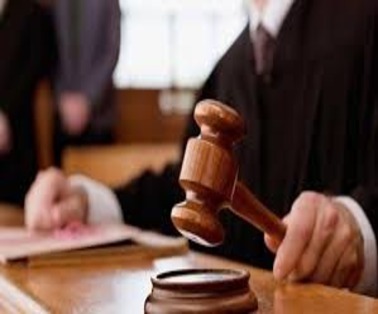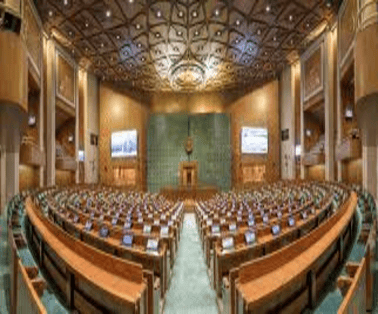Removal Of Governor: Tamil Nadu Chief Minister M K Stalin has written to President Droupadi Murmu accusing Governor R N Ravi of inciting “communal hatred” and labelling him a “threat to peace in the state” demanding the removal of Governor
Key Points On The Removal Of Governor
- The CM called Ravi unfit for the office of Governor and requested the President to consider removal of Governor from the high constitutional position due to his political bias, hasty actions, and incitement of communal hatred.
- He alleged that Ravi’s actions show his extraordinary animosity towards Tamil Nadu as well as defaming the name Tamil Nadu
- The CM accused the Governor of being “involved in ideological and political conflict with the democratically elected DMK government” since assuming office in September 2021, listing several examples.
- The Governor’s actions, the government statement said, had caused distress and hindered the government’s functioning.
- The CM raised concerns about unnecessary delays in approving Bills passed by the Assembly.
- The letter mentioned the dispute over minister V Senthil Balaji who was dismissed by the Governor last month following his arrest in a corruption case. Ravi withdrew the order after a few hours. The CM said that “the Governor’s recommendation of this nature is against the law”.
- Among other things, Stalin accused the Governor of delaying permission to proceed with corruption cases against ministers in the previous AIADMK government, including in the Gutkha scam.
- Because of all these reasons, the demand for removal of Governor has been made
Governor’s Appointment And Removal
- Under Article 155 and 156 of the Constitution, a Governor is appointed by the President and holds office “during the pleasure of the President”.
- If this pleasure is withdrawn before completion of the five-year term, the Governor has to step down.
- As the President works on the aid and advice of the Prime Minister and the council of ministers, in effect, the Governor can be appointed and removed by the central government.
- Thus, a Governor is a representative of the Union government in states.
- Article 163 of the Constitution says the Governor will normally be aided and advised by the Council of Ministers except in those functions which require his discretion.
- While the Governor’s duties and responsibilities lie in a particular state, there is no provision for impeaching the Governor.
What Is The Term Of The Governor’s Office?
- The term of governor’s office is normally 5 years
- Since the Governor holds the office under the pleasure of the President, his office has no fixed term. President can remove the Governor and the grounds upon which he may be removed are not laid down in the constitution.
- Governor may also get transferred from one state to another by the President. He also can be reappointed.
Eligibility Of Governor
- Be a citizen of India.
- Be at least 35 years of age.
- Not be a member of the either house of the parliament or house of the state legislature.
- Not hold any office of profit.
Governor-State Relations
- Although envisaged as an apolitical head who must act on the advice of the council of ministers, the Governor enjoys certain powers granted under the Constitution, such as giving or withholding assent to a Bill passed by the state legislature, assenting to the convening of the state legislative assembly, determining the time needed for a party to prove its majority, and which party must be called first do so, generally after a hung verdict in an election.
- All these powers have been flashpoints recently — to cite two instances, when the Maharashtra Governor had Devendra Fadnavis sworn in as the chief minister in 2019 amid a hung verdict, only for his government to fall in 80 hours; and when the Punjab Governor in September refused to allow a special session of the Assembly for a vote of confidence in the AAP government.
The Governor-State Conflict
- There are no provisions laid down in the Constitution for the manner in which the Governor and the state must engage publicly when there is a difference of opinion.
- The management of differences has traditionally been guided by respect for each other’s boundaries.
Legal and Constitutional Implications

What Various Commissions Have Said?
- Over the years, several panels and commissions have recommended reforms in how Governors are appointed and how they function, such as the Administrative Reforms Commission of 1968, the Sarkaria Commission of 1988, and the National Commission to Review the Working of the Constitution, headed by retired CJI M N Venkachaliah, in 2001.
- The Sarkaria Commission had recommended that Governors are not sacked before completing their five-year tenure, except in “rare and compelling” circumstances. Recommendations have also been made for a provision to impeach the Governor by the Assembly. However, none of these have been implemented.
To Download Monthly Current Affairs PDF Click here
Get Inspiration from CLAT 2025 Topper
Click here to get a free demo
Everything About CLAT 2025



